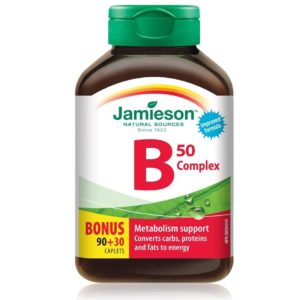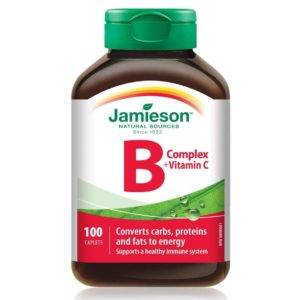
11 Medically Recognised Benefits of Singing
Even people who think they have a bad singing voice can sing. Simply put, singing is the resonant sound produced by vibrating the vocal cords using breath. Renowned vocalist Su Liwen said, "Singing is breathing." Scientists and medical experts have also proven that when people sing, their brains release a hormone called oxytocin. This hormone can evoke feelings of satisfaction, reduce anxiety, and increase a sense of calm and security.
Born in Kaohsiung, Taiwan, vocalist Su Li-wen graduated from the Music Department of National Tsing Hua College, Hong Kong in 1976. In her early years, she studied opera in Japan, Italy, Austria, and Germany, and pursued further studies in the United States. She has released an album, "Looking at the Clouds – Su Li-wen's Concert Collection." Besides bringing her beautiful voice to the world, she also teaches singing at community colleges and has established a choir, dedicating herself to public art education and hoping to convey the beauty of singing to everyone. For her, "I like to sing a song because it tells my own story." Beyond that, the benefits of singing are countless. She combines her own experience with the opinions of scientists and medical experts, categorizing the benefits of singing into the following 11 points:
1. Singing is a rhythmic internal massage.
Singing is a rhythmic internal massage; it can open up the diaphragm, and this internal circular massage is something that no other form of exercise can replace.
Singing songs with a lower register can stabilize blood pressure; singing fast-paced songs can...Physical and mental well-beingSinging songs with sustained notes can relieve stress and is beneficial to physical and mental health. Singing loudly can also have an auxiliary effect in the treatment of obsessive-compulsive disorder and depression.
2. Singing can enhance the body's...Immune function
Su Liwen said, "A study from the University of California found that after each rehearsal, the level of an immunoglobulin called IgA in the choir members increased by 1501 TP4T, and after a public performance, this immunoglobulin increased by 2401 TP4T."
"Even elderly people who have never had vocal training can benefit from singing: those who sing regularly visit the hospital less often and are less likely to fall."
3. Singing can train neural pathways.
Whether elderly, young students, or homeless, people experience improved moods after singing. Furthermore, patients with emphysema experience improved breathing after singing training. Amateur singers also demonstrate better posture and demeanor.
4. Singing can release hormones and enhance relationships.
Researchers have shown that when people sing, their brains release a hormone called oxytocin. This hormone is also released in the brains of new mothers breastfeeding their babies, and in the brains of lovers gazing lovingly at each other. This hormone can enhance the bond between people.
5. Singing can help you lose weight healthily.
Singing is a full-body workout that engages all the muscles in the body, potentially contributing to weight loss. A person weighing 60 kg burns 2.0 kcal per minute while singing, and 240 kcal per hour (depending on breath control). Singing a song is equivalent to running 100 meters, which is great news for those who want to lose weight but dislike exercise.
6. Singing can enhance respiratory function.
Singing and vocal exercises can both increase lung capacity and improve respiratory function. Statistics show that the average adult male's lung capacity is around 3,500 ml, and the average adult female's is around 2,500 ml, while a singer's lung capacity is typically around 4,000 ml. Therefore, singing is a good way to improve respiratory function.
7. Singing can stimulate anti-aging effects.
Singing releases hormones that promote tranquility. Engaging in a song exercises facial muscles that are often neglected, which can help fight aging, maintain skin elasticity, prevent skin deterioration, and alleviate menopausal symptoms. Make singing one of the most enjoyable and relaxing things in life, and it will bring you joy and rejuvenate your youth.
8. Singing loudly can change a person's mood and mental outlook.
Psychologists believe that singing loudly can be beneficial in treating obsessive-compulsive disorder and depression. Therefore, singing loudly is a special form of psychotherapy.
9. Singing hasIt helps to facilitate emotional flow.It helps you forget your troubles and soothe your emotions.
When you're fully immersed in singing, you can forget your troubles, achieve a relative mental balance, regulate your emotions, and sing away fatigue. Emotional regulation is difficult, so I recommend everyone sing more often. Sadness and anger can cause the body to produce many substances harmful to health, but singing can help eliminate these substances. During the singing process, your emotions gradually calm down. When you are sad or angry, it's best to sing out loud.
10. Singing can play a supporting role in the treatment of stomach ulcers.
If a person is sad or depressed, these negative emotions can cause excessive secretion of stomach acid. When the stomach lining is constantly soaked in stomach acid, ulcers can form. However, once a person maintains a happy mood, stomach acid secretion returns to normal, and the ulcers in the stomach will gradually heal, restoring stomach function.
11. Relieve constipation
Singing utilizes diaphragmatic breathing to strengthen abdominal muscles and stimulate bowel movements. If you suffer from chronic constipation, try singing more. Singing brings joy and keeps you young. Keep singing good songs and sing out your good mood. Make singing loudly one of the most enjoyable and comforting things in life!
The body is the best musical instrument bestowed upon us by God; it can be carried with you and used anywhere.
In her book "Singing with Life," Su Liwen mentions that in addition to performing vocal music in various places, she has also taught singing for many years. She was deeply moved by the joy of seeing her group members singing heartily and forgetting their worries. "There was a student who had been suffering from depression, but after he came to learn singing from me, his condition improved significantly."
Su Liwen recounted the story in detail. It turned out that this student worked in military financial management, a job that brought immense pressure and constant anxiety. At its worst, he even became obsessed with his problems and considered ending it all. He later saw a doctor and learned he had depression, but the constant use of medication didn't alleviate his melancholy. "Then, by chance, he learned to sing from me, and within three years, his depression miraculously disappeared without medication."
Sing upbeat melodies when you're happy, and hum your sorrows when you're sad. Su Liwen says, "Singing is the source of our happiness and joy, and also a secret to our health and longevity. From now on, 'listen to more music, think more about the lyrics, and sing more often—that's all you need!'"
Further Reading:
Why do we only sing old songs when we go to karaoke after we turn 35?
Study: Singing can boost immunity and reduce inflammation, effective within 1 hour.
Do people who can sing have a larger lung capacity?
Music therapy for dementia: Singing brings positive energy.
Related Post:
Related Products:
-
Jamieson – Natural Vitamins B complex 50 120 capsules
Original price was: $168.00.$108.00Current price is: $108.00. Add to basket -
Jamieson – Vitamin B Complex & Vitamin C 100 Capsules
Original price was: $140.00.$118.00Current price is: $118.00. Add to basket -
Webber Naturals – Melatonin 5mg 400 capsules
Original price was: $188.00.$158.00Current price is: $158.00. Add to basket






































































